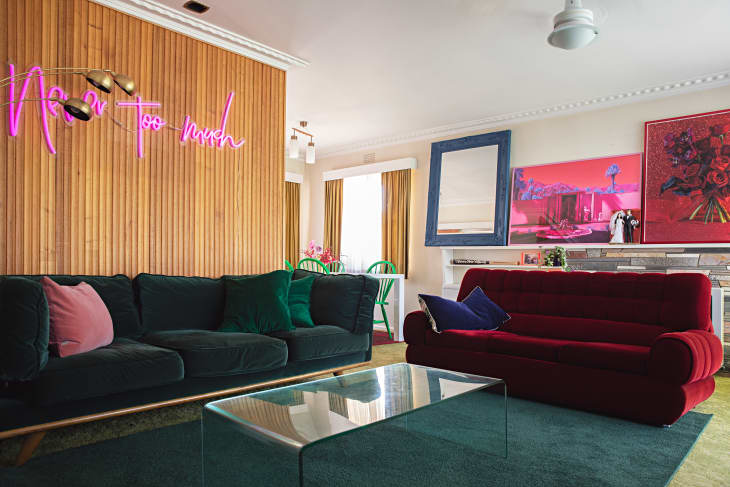Temporary But Effective: 5 Ideas for Hiding or Minimizing an Ugly Floor

Do you have ugly floors? What a bummer, considering how huge of an area flooring usually covers in one’s home. If you can’t completely change your floors because you rent or don’t have the time or budget right now, it doesn’t mean you can’t disguise an ugly floor — or at the very least, minimize its ugliness.
How to Cover Ugly Floors in a Rental
Ready to get started? Peruse these ideas for inspiration on how you can change the look of an ugly floor without pulling it up or permanently altering it.
1. Stitch and Scatter
Now the debate about whether or not placing an area rug over top carpet is an okay thing still rages on pretty strongly these days, so we won’t tell you to do this idea over the carpet if that’s going to bug you.
But an affordable way to cover large areas of ugly flooring with area rugs is to buy or thrift many of them,
Cover carpet with laminate flooring How have you disguised or hidden your ugly floors in your apartment or house without ripping out the old one or permanently damaging the flooring? 
2. Carpet Tiles
It’s not cheap, but it is quite effective. The reason for going the carpet tile route versus just an area rug is that it’s a bit more flexible this way. Instead of just buying a standard-sized area rug that will only cover part of your ugly floor, with carpet tiles, you can buy many and trim them so you could basically cover every inch of an ugly floor (and take it with you when you move). Here’s how to cut and install FLOR tiles. 3. Temporary Vinyl Flooring
Check out both the idea in the post
Floor Cloths for Ugly Kitchen Floors
While a simple area rug might cut it in a living room or bedroom with ugly floors, you can’t always use one in a kitchen with an ugly floor, depending on how you use your kitchen. But a floor cloth is more suitable for kitchen use and could help disguise an ugly floor while being easy to care for. They’re easy to DIY, too.
If this sounds like a wild idea, well, it is. But as evidenced by this post, it’s not an impossible one. Though it would take some time, energy, and money to tackle this particular ugly floor fix, the results would probably be pretty impressive.
